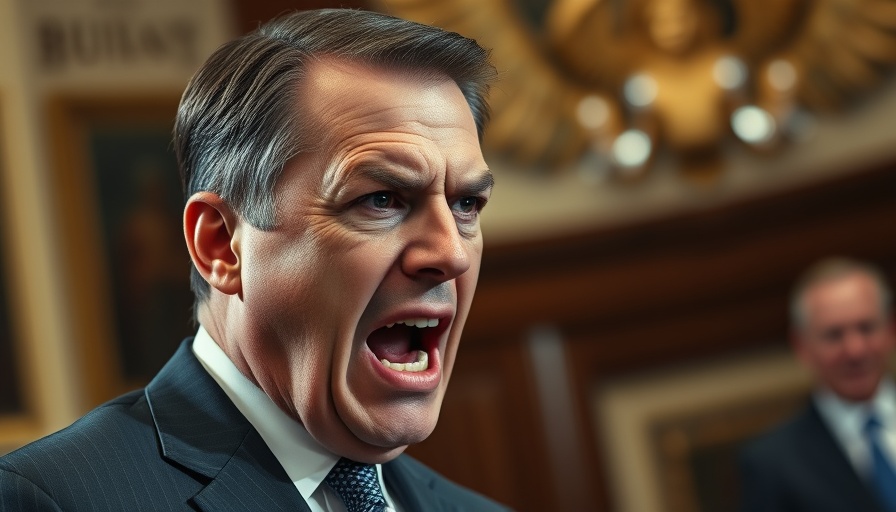
Brazil's Turbulent Political Landscape: The Fall of Bolsonaro
Brazil, the largest country in South America, remains in political turmoil as former president Jair Bolsonaro faces legal challenges that could reshape the nation's governance. Recently, he was ordered to wear an ankle monitor following extensive police searches at his residence and party headquarters in Brasília. Charged with attempting to undermine the Brazilian electoral process that saw Luiz Inácio Lula da Silva triumph over him in 2022, Bolsonaro’s situation is emblematic of a precarious political era.
Understanding Ankle Monitoring in Legal Contexts
The imposition of an ankle monitor on Bolsonaro highlights an important aspect of contemporary legal practice regarding Electronic Monitoring Systems (EMS) in Brazil and worldwide. Such measures often serve not only as punitive actions but also as precautionary strategies that balance public safety and the rights of the individual. In Bolsonaro’s case, restrictions include prohibiting night movements, denying him access to foreign diplomats, and barring any contact with other individuals under the Supreme Court’s scrutiny, including his son Eduardo. These limitations showcase a robust legal framework designed to oversee former officials, aiming to prevent further acts that could lead to destabilization.
The Role of International Relations and Support
Internationally, Bolsonaro has maintained a network of allies, notably in the United States. His close connection with Donald Trump is evident, especially as Trump recently voiced outrage over the treatment of his ally, terming it "unjust". This relationship raises questions about the influence of foreign politics on Brazilian affairs, where the former president’s legal problems intersect with global power dynamics. As foreign leaders comment on Bolsonaro's tribulations, the potential for international diplomacy—or its absence—could eventually impact Bolivia's internal stability. The question remains: how will Brazil navigate this scrutiny while addressing the concerns of its citizens?
Comparative Analysis: Similar Situations Globally
Bolsonaro's legal troubles could draw parallels with former leaders facing accountability worldwide. From the judicial proceedings of Jacob Zuma in South Africa to the ongoing legal challenges faced by Donald Trump in the U.S., the scrutiny of leadership actions post-tenure is becoming a global theme. These comparisons not only highlight a trend but also challenge some leaders' expectations of immunity after their terms. Bolsonaro's case could play a reassuring role to Brazilians, stressing the principle that no individual, regardless of their previous power, is above the law.
Future Perspectives: What Lies Ahead for Bolsonaro?
As the trial unfolds, the outcomes may send ripples through Brazil's political framework. If Bolsonaro is found guilty, it could deter similar behavior in future elections, as a clear signal is sent that violating democratic norms has severe consequences. However, there is also a potential for Bolsonaro to rally his base, using his legal woes to paint himself as a victim of political persecution, thus igniting further divisions within Brazilian society. Observers of Brazilian politics should keep a keen eye on how these dynamics play out, and how they might influence the narrative around governance in the upcoming elections.
Public Sentiment and Social Implications
The public's reaction to Bolsonaro's legal situation has been polarized. Supporters rally in his defense, claiming that this move is a politically motivated strike against him, while his opponents perceive accountability as a victory for democracy. This division encapsulates the broader social implications of Bolsonaro's presidency and his current predicament. Understanding public sentiment in Brazil is crucial, as it will shape the political landscape moving forward, setting the scene for future elections and policy-making. Engaging with this complex landscape requires empathy and keen observation of evolving narratives across Brazilian society.
Conclusion: Holding Leaders Accountable
Bolsonaro’s recent order to wear an ankle monitor underscores a vital moment in Brazilian history as lawmakers, and citizens grapple with the importance of holding leaders accountable to the rule of law. As the trial progresses, it illustrates the broader theme of eternal vigilance necessary in democratic societies. Brazil stands at an important crossroads in its democratic evolution, where the rule of law and the frameworks governing it are tested in real-time. The coming months will reveal whether accountability can be reestablished in Brazil's political life.
 Add Row
Add Row  Add
Add 




Write A Comment